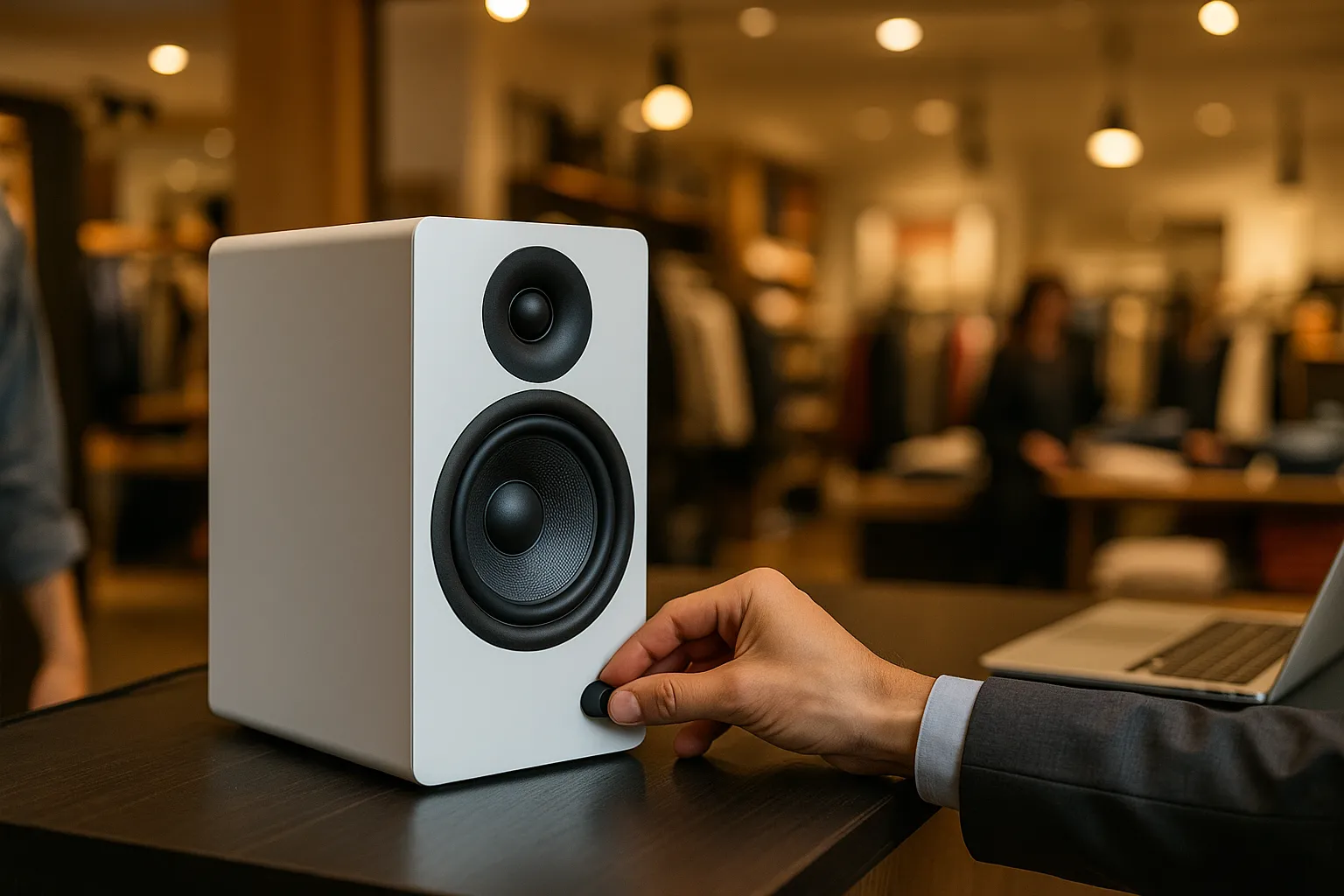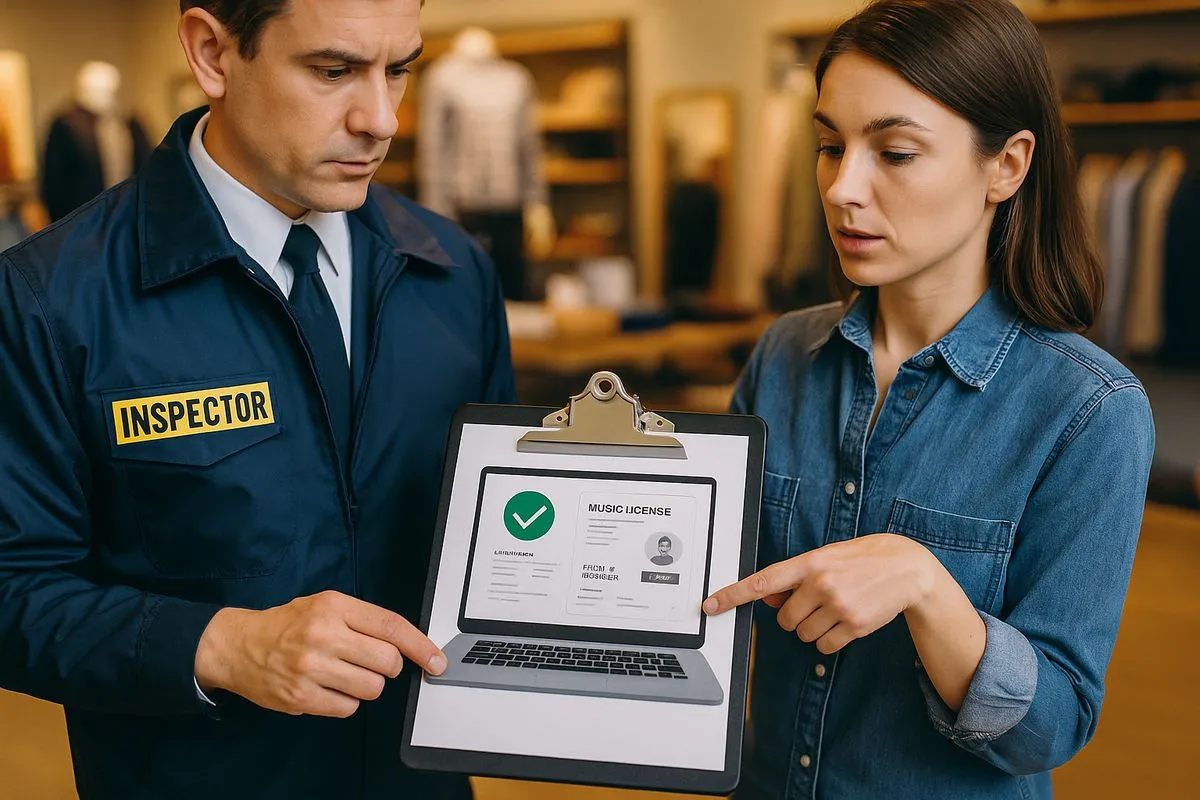Online Safety Act and AI music: what it means for UK and global retail
The United Kingdom has introduced the new Online Safety Act, a law that sets much stricter rules for digital content. It is not limited to social media: it also affects publicly played music, including playlists used in stores.
For UK retailers this law is already a reality, but its relevance goes beyond national borders: although it is not directly enforceable worldwide, MoosBox has chosen to apply the same higher standards introduced in the UK. An extra guarantee of safety and transparency.
The purpose of this regulation is to protect users—especially young people—from harmful, offensive or inappropriate content, creating safer digital and physical environments. In practice, it means that every piece of content shared publicly, including music, must comply with suitability and traceability criteria.
In one sentence:
The UK Online Safety Act shows that in-store music should not only inspire emotions, but also be safe and compliant.
In short: lessons for international retail
- Music played in public must be safe and free of explicit lyrics.
- Retailers are responsible for what is broadcast in their stores.
- Choosing a music provider is not just about price, but about reliability and compliance.
- MoosBox applies the Clean Mode, ensuring playlists suitable for families and minors.
- Adopting a higher standard (like the UK one) means greater protection for retailers worldwide.
Why the Online Safety Act is a key reference
The Online Safety Act was designed to reduce the spread of explicit, violent or illegal content. It does not stop at the web, but applies to any digital content publicly shared, including music.
Why is it relevant outside the UK? Because it anticipates the regulatory direction of the European Union and other markets: similar rules will soon be introduced. This is why choosing today a provider already compliant with stricter standards means protecting yourself in advance.
A real-world example: imagine a clothing store where families walk in, and the playlist includes a mainstream hit with swear words or inappropriate messages. In minutes, a customer could post about it on social media, turning a shopping afternoon into a reputational risk. The Online Safety Act, though born to protect minors from online dangers, also prevents these situations in physical spaces by ensuring a safe context.
According to international research — such as the study published in the Journal of Retailing — the pleasantness of in-store music positively influences customer engagement and trust. This proves that music is not a detail, but a crucial part of the retail experience, and that most customers associate the quality of the sound environment with the professionalism of the brand.
Yet many stores still rely on playlists improvised from YouTube or Spotify, thinking they save money or just picking “songs the owner likes.” But this approach exposes them to legal, reputational, and brand inconsistency risks. With stricter regulations ahead, such practices become unsustainable (and don’t forget that using YouTube, Spotify, etc. in commercial contexts is not allowed).
AI music, independent artists and quality control
A common doubt concerns AI-generated music: many consider it poorly controlled and risky. Is that true? It depends on the provider. If you use improvised platforms, the risk is real. How to solve it? With fully licensed catalogues and playlists reviewed by professionals.
MoosBox addresses the issue with a structured approach:
- every AI and independent track is analysed, approved and catalogued;
- we apply Clean Mode, filtering explicit or inappropriate content;
- the catalogue is fully licensed and does not require payments to PRS, PPL or ANY OTHER COLLECTING SOCIETY IN THE WORLD.
The result: safe, fresh playlists always compliant with the most advanced standards.
Why this also matters to global retailers
Music is never just background noise: it influences customer dwell time, brand perception and even sales. With stricter regulations coming in Europe and beyond, choosing the right provider is no longer a price issue, but one of compliance and solidity. A weak or unclear contract today can turn into a serious problem tomorrow.
FAQ – Online Safety Act and retail
Does the UK Online Safety Act apply outside the UK?
No. It is a British law. However, it serves as a reference model and anticipates European and global regulatory trends.
What benefits do international retailers get from MoosBox compliance?
MoosBox applies the same strict standards as in the UK, guaranteeing safe playlists with no questionable content. That means more protection and fewer risks, anywhere in the world.
Do I still need to pay SIAE or SCF if I use MoosBox?
No. Our catalogue is fully licensed directly and does not require intermediaries such as PRS, PPL or ANY OTHER COLLECTING SOCIETY.
Is AI music really safe?
Yes. Our AI tracks undergo suitability and traceability checks. Plus, with Clean Mode, we exclude content not suitable for retail contexts.
Conclusion
The Online Safety Act sends a clear signal: international regulations are moving towards stricter control of content. Even if it is not yet law elsewhere, choosing a provider that already meets UK standards means extra safety.
In 2026, winning stores won’t be those cutting costs on music, but those offering a safe, consistent and compliant sound experience. With MoosBox, in-store music becomes a branding, innovation and legal protection asset.
Want to make sure the music in your stores is safe and already compliant with the highest standards? With MoosBox you get an AI + independent catalogue fully licensed, curated playlists and no extra costs to PRS, PPL or ANY OTHER COLLECTING SOCIETY.
In-store music is not just a matter of law: it is a language that tells who you are. And soon, from sound to voice to scent, retail will be multisensory. Choosing a compliant partner today means being ready for the future.




